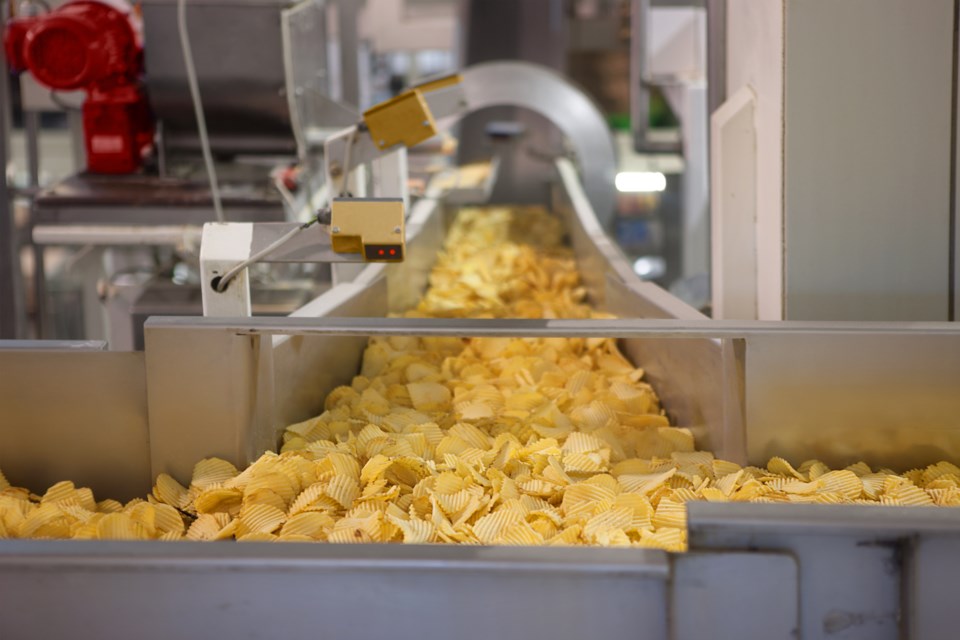Before you take a bite of a crisp, sweet apple — the kind that leads to juice dribbling down your chin — do you ever stop to wonder how it got to be so perfect?
Rigorous food safety and dozens of particular eyes on it from the time it’s picked to the time it’s placed atop the mound of other perfect specimens in the grocery store corral may have something to do with it.
“I think we've gotten to a point, as consumers, where we want uniformity in certain products,” says Rickey Yada, dean of the faculty of land and food systems at U–°¿∂ ”∆µ.
“If you buy a bag of apples, you're hoping they're all… similar in colour, they're all similar in shape and that you don't have any bad apples.”
But even with various people and systems in place to maintain this sense of perfection, once in a while a bad apple makes it through undetected.
This is when food safety becomes a health concern. Just last year, the reported that an outbreak of the bacteria listeria in deli meat led to 12 people in hospital and one death.
But according to a new study by Yada and his colleagues, these serious or fatal incidents could soon be a thing of the past with the employment of artificial intelligence (AI) in food production.
Currently, the study explains, most food safety errors are discovered via lagging indicators, otherwise known as incidents that occur post-production.
“In the past… when a food incident was identified, it was usually post-processing,” Yada said. “So people would report that they've gotten ill from eating certain foods and then the food detectives came in to try to identify what specific food was the culprit.”
After a recall of a certain food is issued, Yada said the repercussions of this go far beyond a couple of customers’ upset stomachs. He said the economy can take a hit with multiple workers calling in sick and the reputational damage to a company can be profound.
But with AI, there’s the potential to turn these lagging indicators into leading indicators and identify a dangerous product before it leaves the hands of the producer.
How does it work?
Through various tools such as image analysis and product scanning, AI’s data-driven approach can help food producers identify problems before they enter the consumption stage, the study states.
Imagine there’s a row of 20 apples travelling along the production line, Yada says. At one point they pass by an AI sensor looking for uniformity and if one bad apple is identified, it’s taken off the line within seconds.
“Part of the artificial intelligence modality is to try to take all these different inputs, integrate them, but do that in real-time,” Yada said. “So that we get the assessment of the quality of that product right then and there.”
With AI’s capability to integrate information and imitate the human brain, Yada said he’s confident the system could help identify food safety concerns to a higher degree.
Not only will this food safety-oriented AI be responsible for picking out a bad apple or two, it’s also capable of monitoring human behaviour for nuanced reactions to certain products.
This is done through image analysis, Yada says. Analyzing the facial reactions or body language of workers interacting with products on the line could allow AI to alert those monitoring its algorithm that something may be off with a product.
If a worker appears to be hesitant in deciding whether a product should remain on the processing line, such as a bruised or discoloured apple, the AI will be able to pick up on that.
“Hesitation is often a giveaway that you're not quite sure. And that would be fed into the algorithm to say, ‘Oh, wow, maybe this product needs to be looked at more carefully because it could be defective,’” Yada said.
“The decision would be made right then and there that maybe there should be a secondary examination on that product.”
However, even with the possibility of AI improving upon the work of humans, Yada said he doesn’t think machines will ever quite reach the point of a total takeover.
“Will we ever get to that point? I don't know. Maybe. We're getting close,” he said.
“But will we ever have that [transition] where robots using artificial intelligence will replace humans? I think there are cues that humans pick up that machines probably won't.”
The unifying effect of food safety
With the “cloak and dagger” nature of the food systems industry, Yada says he wouldn’t be surprised if AI was already being used by some companies, unbeknownst to the public.
But even with many companies being fairly secretive about their production methods to preserve recipes, such as the combination of oils used to fry potato chips, Yada says food safety is one of the topics nearly all companies can get behind.
“Food safety is one of those universal issues that I think if food companies were to share, they’d share around food safety because it's in their best interest across the board,” he said.
Yada said that with this new research, he hopes food companies can become more secure in their production of safe food. Especially with the impending effects of climate change on global food systems and the possibility of more global supply chain issues.
Even local food cooperatives in –°¿∂ ”∆µ, Yada hopes, could one day share the cost of this new technology to ensure people have access to safe food within their own country or province.
“Our universal goal is to ensure that we have a safe product and that we can actually process it as quickly as possible,” he said.





